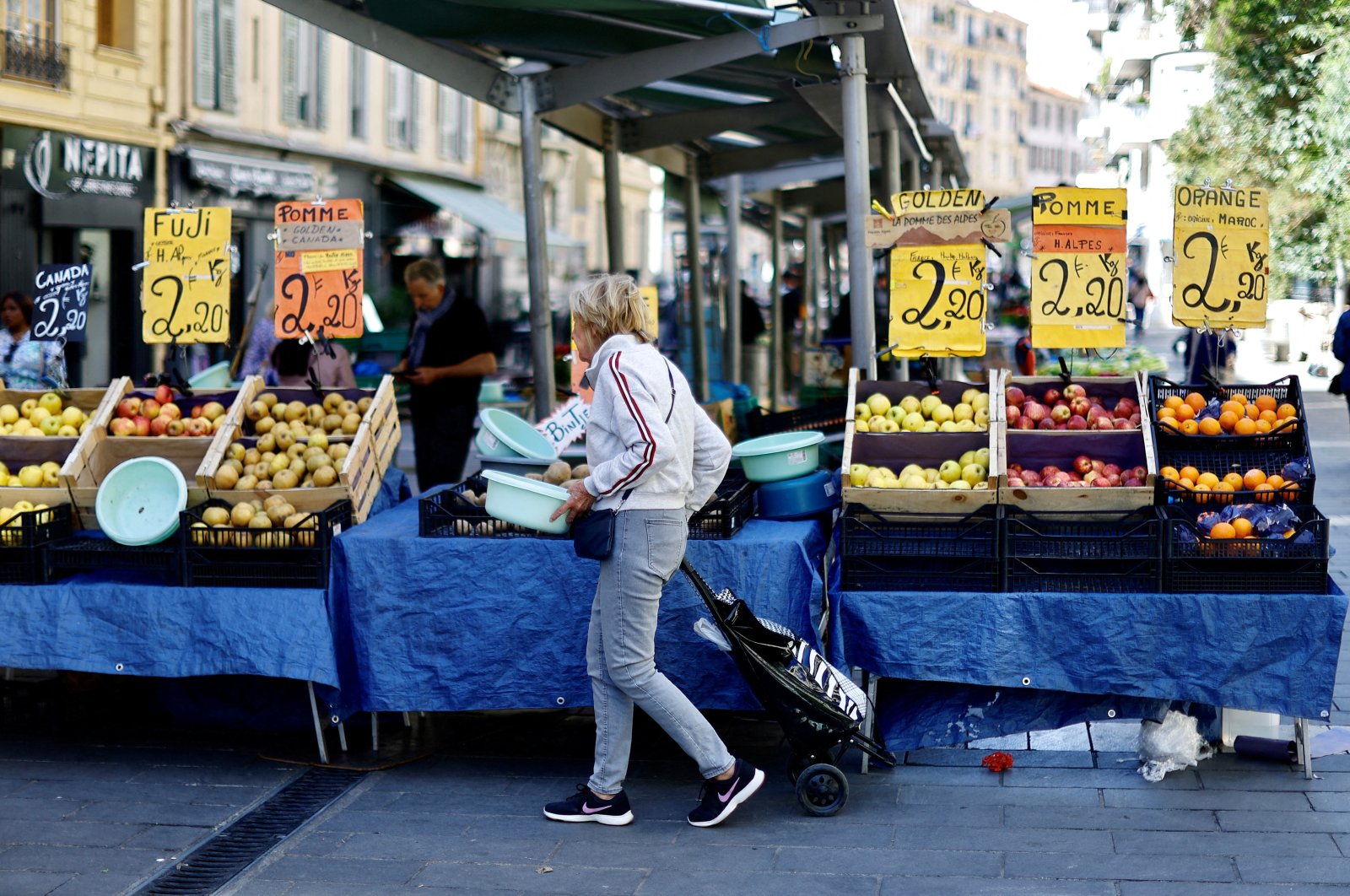
Inflation in the eurozone eased again in February, driven by a sharp slowdown in the rate of food and drink price rises, official data showed Friday, but the drop was smaller than expected.
The underlying price growth, which remained stubbornly high, added to the case for the European Central Bank (ECB) to hold interest rates at record highs a bit longer before starting to ease policy toward mid-year.
Consumer prices in the 20-nation single currency area rose 2.6% in February from a year earlier, down from a 2.8% rise in January, the European Union's statistical agency Eurostat said.
Inflation is now far below its peak of 10.6% in October 2022, which it hit after Russia cut off most natural gas supplies and sent energy prices through the roof.
But the return of inflation to 2%, the goal set by the European Central Bank, is taking time.
Analysts surveyed by Bloomberg and FactSet had predicted that the inflation rate would fall to 2.5%.
The ECB is now under more pressure to cut interest rates after keeping them unchanged since October at a two-decade high.
Food inflation eased to 4% from 5.6% in January, offering some relief to people on modest incomes who spend more of their pay on necessities than the well-off.
Another factor was energy prices, which fell by 3.7%, much narrower than the 6.1% decline in January, according to the data.
But crucial core figures, which strip out volatile food and fuel prices, only declined to 3.1% from 3.3%, missing expectations for 2.9% and holding uncomfortably above the ECB's target.
It still marked the lowest level in two years in the key indicator for the ECB.
The Frankfurt-based ECB's rate hike following the Russian invasion of Ukraine in 2022 has affected the eurozone economy, with expectations of weaker growth in 2024.
The next rate-setting ECB meeting will be on March 7.
"With monthly inflation prints (readings) and global energy prices coming in below the ECB's expectations, the ECB will likely have to lower its inflation forecast further at the upcoming meeting," said Paolo Grignani, senior economist at Oxford Economics.
Prices spiked after Russia cut off most natural gas supplies to Europe, sending energy prices through the roof, and as the post-pandemic rebound led to logjams in supplies of parts and raw materials. Those troubles have eased, but lost purchasing power slowed the economy and many workers have yet to catch up through new wage agreements.
The drop in the inflation rate brings the ECB closer to achieving its goal of 2% inflation, the rate considered best for the economy. The central bank for the eurozone swiftly raised interest rates to squeeze inflation out of the economy, taking its key rate to a record high of 4% in September.
Higher rates combat inflation by making it more expensive to buy things on credit, dampening demand for goods and upward pressure on prices. However, higher credit costs can hold back growth, which has been in short supply in Europe.
The eurozone showed zero growth in the last three months of last year, following shrinkage of 0.1% in the quarter before that.
Worries about growth and moderate inflation have shifted the focus to when the ECB might start cutting rates. The bank's rate-setting governing council meets on Thursday but is not expected to change rates yet.
The council and ECB President Christine Lagarde are likely to wait for more data on wages and prices to be sure inflation is under control before cutting rates in June, said Carsten Brzeski, global head of macro at ING Bank.
"As long as the ECB is not willing to accept that inflation is roughly returning to target but instead pushing for an exact landing point of 2%, rate cuts should only be on the agenda at the June meeting," Brzeski said.
Across the European Union, Latvia registered the lowest inflation rate in February, at 0.7%, according to Eurostat.
Inflation fell in the EU's two biggest economies.
The rate of consumer price rises in Germany slowed down to 2.7% last month from 3.1%.
And in France, inflation dropped to 3.1% in February from 3.4% in January, according to the data.
The ECB's key worry is that wage inflation is too fast and prices could bounce back unless workers start showing some restraint soon.
Wages are seen growing by more than 4.5% this year and the ECB has long held that anything above 3% is inconsistent with its own inflation target.
Six quarters of economic stagnation has shaken out the labor market a bit, easing wage pressures, but unemployment remains at a record low and labor costs could come under renewed pressure when growth resumes.
Indeed, fresh data from Eurostat on Friday showed the unemployment rate in the eurozone fell to a historic low of 6.4% in January from 6.5% in December.
But the ECB also acknowledges that workers lost a large chunk of their real incomes to rapid inflation, so some catch up is warranted, as long as workers ease up on their demands when this process is done.
